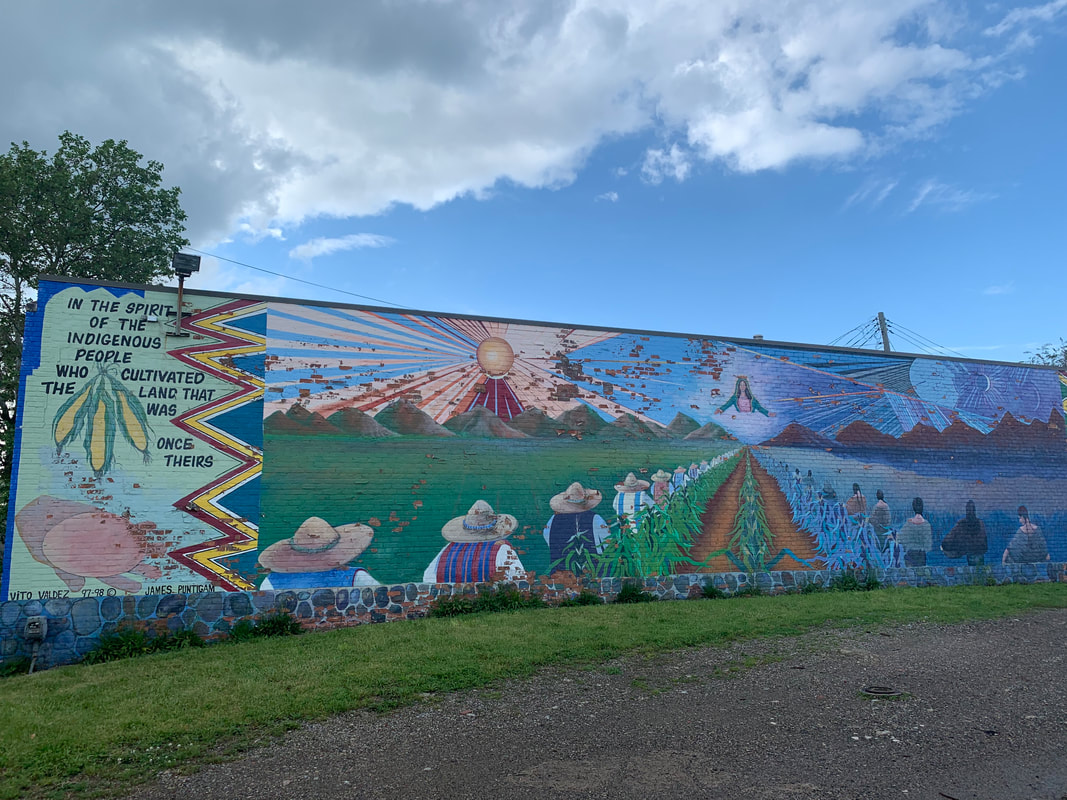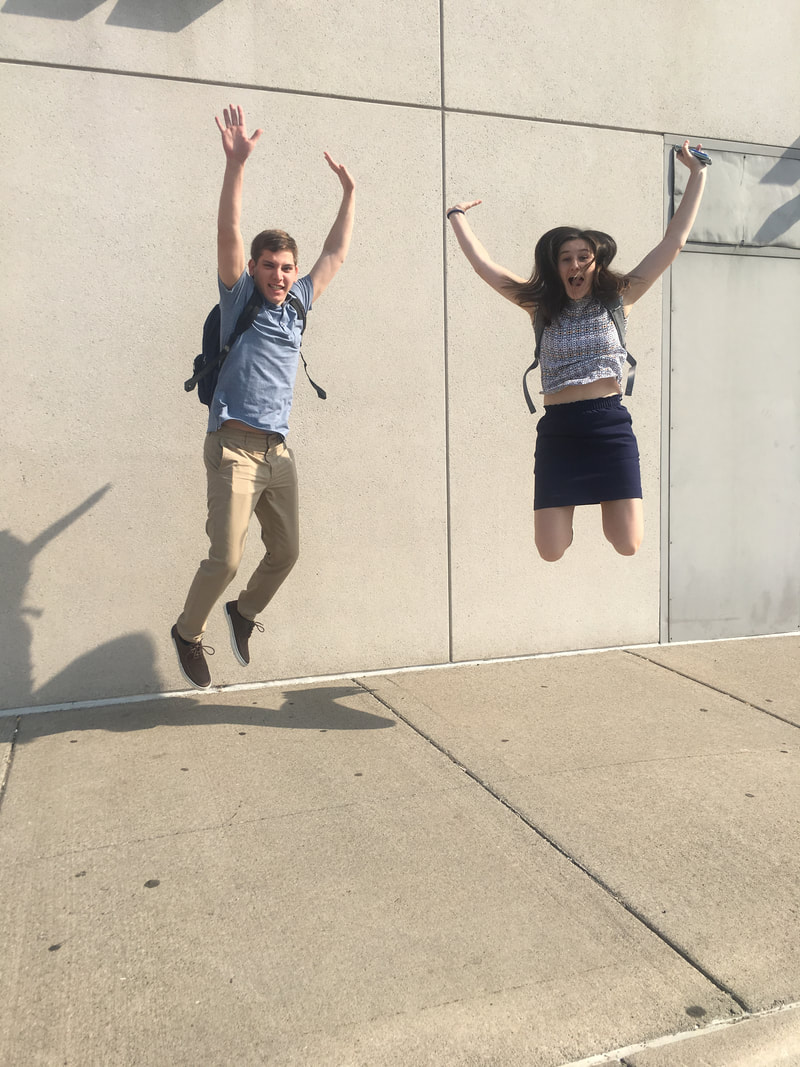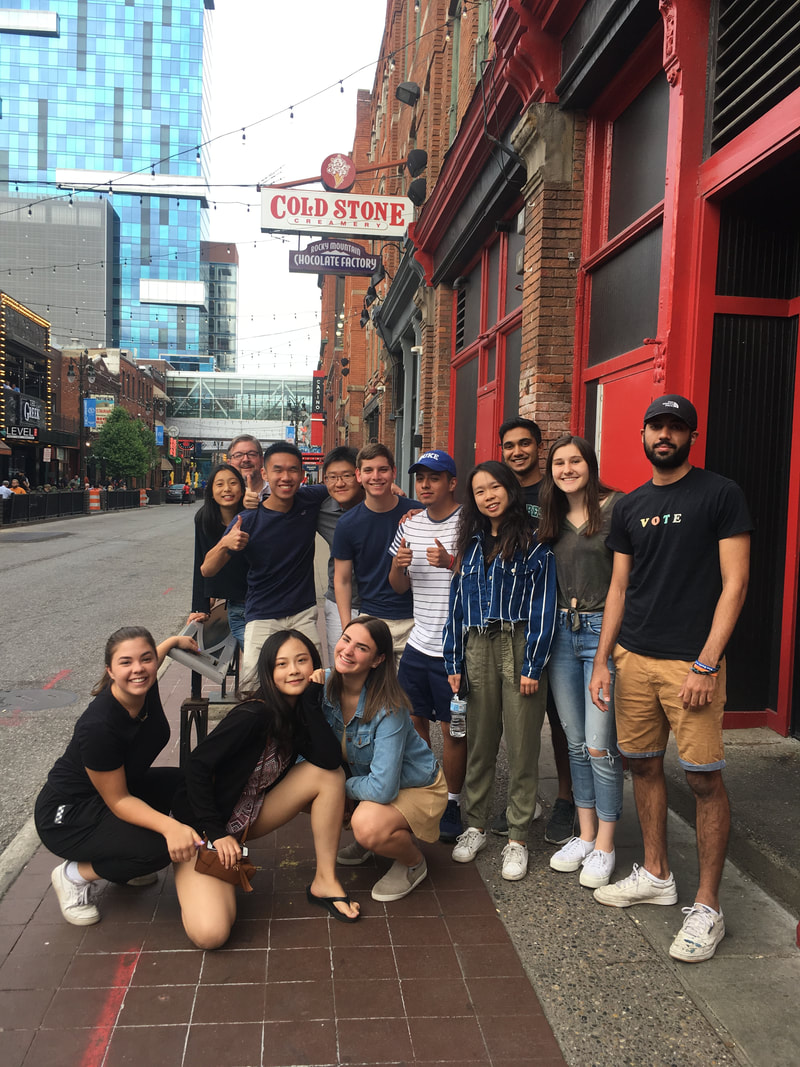When I browsed the Duke Engage website last November, I couldn’t believe the incredible places that Duke students would travel to this summer – from Jordan to Thailand and all the way to South Africa. However, I have since realized that my notion of “incredible” was really just premised on what is far, foreign, and unfamiliar. Yet, I did not apply or join one of the DukeEngage programs in an “incredible” place, instead I joined Duke Engage Detroit. When our Program Director Matt Nash’s mom approached me at our social innovation and entrepreneurship mixer, she exclaimed, “Bryn!” and she proceeded to ask me “so why Detroit?” I quickly rifled off parts of my essay responses from my Duke engage application. I realized that my answers had almost everything to do with aspects of the Duke engage programming itself – the social innovation and entrepreneurship focus, the opportunity to develop pre-professional skills, and the central idea of civic engagement. I never provided much of a basis for “why Detroit” and why this place as much as why this kind of work. Ms. Nash made a comment about how it seemed to be Katherine Black and her son’s programming rather than Detroit that appealed to all of us.
Yet, in the first week of Duke Engage, I have discovered that all of the aspects of this program I was initially attracted to would be nothing without the spirit of Detroit. Detroit is not crime-ridden, dark and helpless, it is prideful, resilient and vibrant. Jeanette Pierce captured Detroit’s essence when she said, “Detroit is big enough to matter in the world and small enough for you to matter in it.” Everyone in Detroit listens to each other and the sense of community is truly unparalleled. At Detroit SOUP everyone was rooting for each other – small vendors competing for business, entrepreneurs competing for prize money and strangers alike all wanted each other to succeed. I believe Detroit’s complex and difficult history – from the great fire of 1805 to "white flight" and the eventual downfall of the auto industry and the crushing bankruptcy have all shaped Detroit into an incredibly resilient city.
Detroit residents hustle to see out the revitalization of the city – but are also very aware of how the revitalization has been unequal in many respects. Downtown and Midtown Detroit have seen extensive economic funding and regrowth, but both places are tied down by institutions of wealth and opportunities like Detroit Medical Center, Wayne State University, and major sporting and cultural institutions. Yet, many poorer neighborhoods, particularly those filled with marginalized people, are not benefiting from the city’s regrowth. Many hardworking Detroit residents whose families have called Detroit home through the city’s most challenging years are not sharing in the expansion. The expansion seems to be springing up right in the backyards of other neighborhoods that need their own share in the growth. It is not uncommon to see a dilapidated building in right behind a brand-new apartment complex.
While I was initially drawn to Duke Engage Detroit because of the “economic development” theme, I have since discovered several flaws with such a broad and impersonal approach to regrow the city. In my first few days at ProsperUS Detroit, I haven’t been craving looking at numbers and statistics about the city’s regrowth or other strictly “economic” projects that may look good on my resume as an economics major. I have been drawn to the people of Detroit and what the residents of Detroit can teach me about resiliency, inequity, and empowerment. I feel so grateful for the opportunity to work at ProsperUS Detroit, which focuses on the revitalization of Southwest Detroit, a majority Latino neighborhood with hardworking residents who deserve to take bigger part in Detroit’s regrowth. A stunning mural by Vito Valdez down the street from ProsperUS showcases the thoughtfulness of Detroit’s artists and residents. It reads “In the spirit of the indigenous people who cultivated the land that was once theirs.”
I am pleasantly surprised how Detroit directly confronts its historical and current issues – including racism, socioeconomic inequality, and poverty. During my time in Detroit I hope that I can continue to learn from this city, and always remember to listen first rather than speak. I am not a Detroit native, and although I already feel very connected to Detroit, I hope that by listening first I can better understand how I can best help Detroit natives and the community in which I am working. I want to work hard to get to know the people I am working with and hear their stories. I will constantly take advantage of this amazing opportunity I have to make Detroit my home – albeit a temporary one.
Yet, in the first week of Duke Engage, I have discovered that all of the aspects of this program I was initially attracted to would be nothing without the spirit of Detroit. Detroit is not crime-ridden, dark and helpless, it is prideful, resilient and vibrant. Jeanette Pierce captured Detroit’s essence when she said, “Detroit is big enough to matter in the world and small enough for you to matter in it.” Everyone in Detroit listens to each other and the sense of community is truly unparalleled. At Detroit SOUP everyone was rooting for each other – small vendors competing for business, entrepreneurs competing for prize money and strangers alike all wanted each other to succeed. I believe Detroit’s complex and difficult history – from the great fire of 1805 to "white flight" and the eventual downfall of the auto industry and the crushing bankruptcy have all shaped Detroit into an incredibly resilient city.
Detroit residents hustle to see out the revitalization of the city – but are also very aware of how the revitalization has been unequal in many respects. Downtown and Midtown Detroit have seen extensive economic funding and regrowth, but both places are tied down by institutions of wealth and opportunities like Detroit Medical Center, Wayne State University, and major sporting and cultural institutions. Yet, many poorer neighborhoods, particularly those filled with marginalized people, are not benefiting from the city’s regrowth. Many hardworking Detroit residents whose families have called Detroit home through the city’s most challenging years are not sharing in the expansion. The expansion seems to be springing up right in the backyards of other neighborhoods that need their own share in the growth. It is not uncommon to see a dilapidated building in right behind a brand-new apartment complex.
While I was initially drawn to Duke Engage Detroit because of the “economic development” theme, I have since discovered several flaws with such a broad and impersonal approach to regrow the city. In my first few days at ProsperUS Detroit, I haven’t been craving looking at numbers and statistics about the city’s regrowth or other strictly “economic” projects that may look good on my resume as an economics major. I have been drawn to the people of Detroit and what the residents of Detroit can teach me about resiliency, inequity, and empowerment. I feel so grateful for the opportunity to work at ProsperUS Detroit, which focuses on the revitalization of Southwest Detroit, a majority Latino neighborhood with hardworking residents who deserve to take bigger part in Detroit’s regrowth. A stunning mural by Vito Valdez down the street from ProsperUS showcases the thoughtfulness of Detroit’s artists and residents. It reads “In the spirit of the indigenous people who cultivated the land that was once theirs.”
I am pleasantly surprised how Detroit directly confronts its historical and current issues – including racism, socioeconomic inequality, and poverty. During my time in Detroit I hope that I can continue to learn from this city, and always remember to listen first rather than speak. I am not a Detroit native, and although I already feel very connected to Detroit, I hope that by listening first I can better understand how I can best help Detroit natives and the community in which I am working. I want to work hard to get to know the people I am working with and hear their stories. I will constantly take advantage of this amazing opportunity I have to make Detroit my home – albeit a temporary one.



 RSS Feed
RSS Feed
